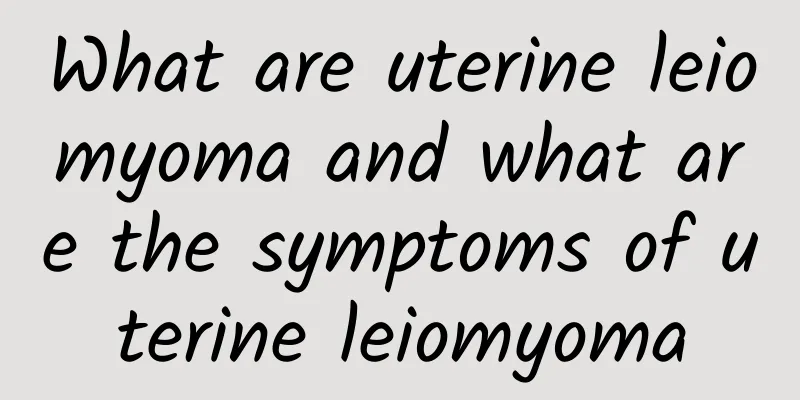What are uterine leiomyoma and what are the symptoms of uterine leiomyoma

|
Uterine leiomyoma is the most common benign tumor of the female genitalia. Most cases are asymptomatic, but a few may present with vaginal bleeding, abdominal tumors, and compression symptoms. Multiple uterine fibroids are often associated with pedicle torsion or other conditions that cause pain. The clinical symptoms of uterine leiomyoma are as follows: 1. Changes in the menstrual cycle: Changes in the menstrual cycle are the most common symptoms, manifested as shortened menstrual cycle, increased menstrual volume, prolonged menstruation, irregular vaginal bleeding, etc. 2. Abdominal mass: Abdominal swelling, lower abdominal swelling, accompanied by a feeling of falling. 3. Increased vaginal discharge: Increased vaginal discharge, sometimes with a large amount of purulent and bloody discharge and necrotic tissue discharge with a foul odor. 4. Abdominal pain and body pain: Generally, patients do not have abdominal pain, but often have lower abdominal swelling, back pain, etc. When the pedicle of the subserosal fibroid is twisted, uterine leiomyoma may cause acute abdominal pain; when the fibroid turns red, the abdominal pain is severe and accompanied by fever. 5. Tissue compression symptoms: When the fibroid grows forward or backward, it can compress the bladder, urethra or rectum, causing frequent urination, dysuria, urinary retention or constipation. When the fibroid grows to both sides, it will form a broad ligament fibroid, compressing the ureter or hydronephrosis; if it compresses the pelvic blood vessels and lymphatic vessels, it will cause lower limb edema. 6. May cause infertility: Fibroids compress the fallopian tubes and cause them to twist, or deform the uterine cavity, hindering the fertilized egg from implanting and leading to infertility. 7. Secondary anemia: If the patient has excessive menstruation for a long time, it may lead to secondary anemia, with symptoms such as general fatigue, pale complexion, shortness of breath, and palpitations. 8. Hypoglycemia: Hypoglycemia with uterine leiomyoma is rare. The main symptoms are low fasting blood sugar, loss of consciousness and shock. The symptoms can disappear completely after glucose injection. After tumor resection, the symptoms of hypoglycemia disappear completely. |
>>: What are the main symptoms of uterine leiomyoma? What should I do if I have uterine leiomyoma?
Recommend
A brief analysis of the etiology of hyperprolactinemia
We must understand the cause of hyperprolactinemi...
Common causes of ovarian cysts
Ovarian cysts are like female killers, often surr...
What are the sequelae of uterine fibroid surgery? What is the best thing to eat after uterine fibroid surgery?
;Many patients are worried about the sequelae of ...
Basketball for fried chicken! Fat boy reduced his BMI in half a year
How to help fat kids lose weight during summer va...
How to tell if you have had a miscarriage
Miscarriage is a common condition in early pregna...
Drink it and you won’t get fat! 5 smart ways to drink wine
As clothes become thinner, you are often forced t...
What are the dietary principles for menopause?
Perimenopause is a normal physiological change. M...
Guava diet for weight loss? Doctor: You can’t eat as much as you want.
Well-known host Chen Wenxian once shared a dinner...
The best hospital for functional uterine bleeding
Functional uterine bleeding, also known as DUB, i...
Can I drink tea if I have a Bartholin's gland cyst?
Patients with Bartholin's gland cysts can dri...
Is adenomyosis contagious?
Is adenomyosis infected? 1. In fact, adenomyosis ...
Methods for inducing ovulation in patients with amenorrhea
For amenorrhea patients who desire fertility and ...
How to prevent cervical erosion
Cervical erosion is one of the most common diseas...
Experts answer the best time for abortion surgery
For women who have an unexpected pregnancy, abort...
How to care for patients with cervical precancerous lesions in daily life
Cervical precancerous lesions are very harmful to...









